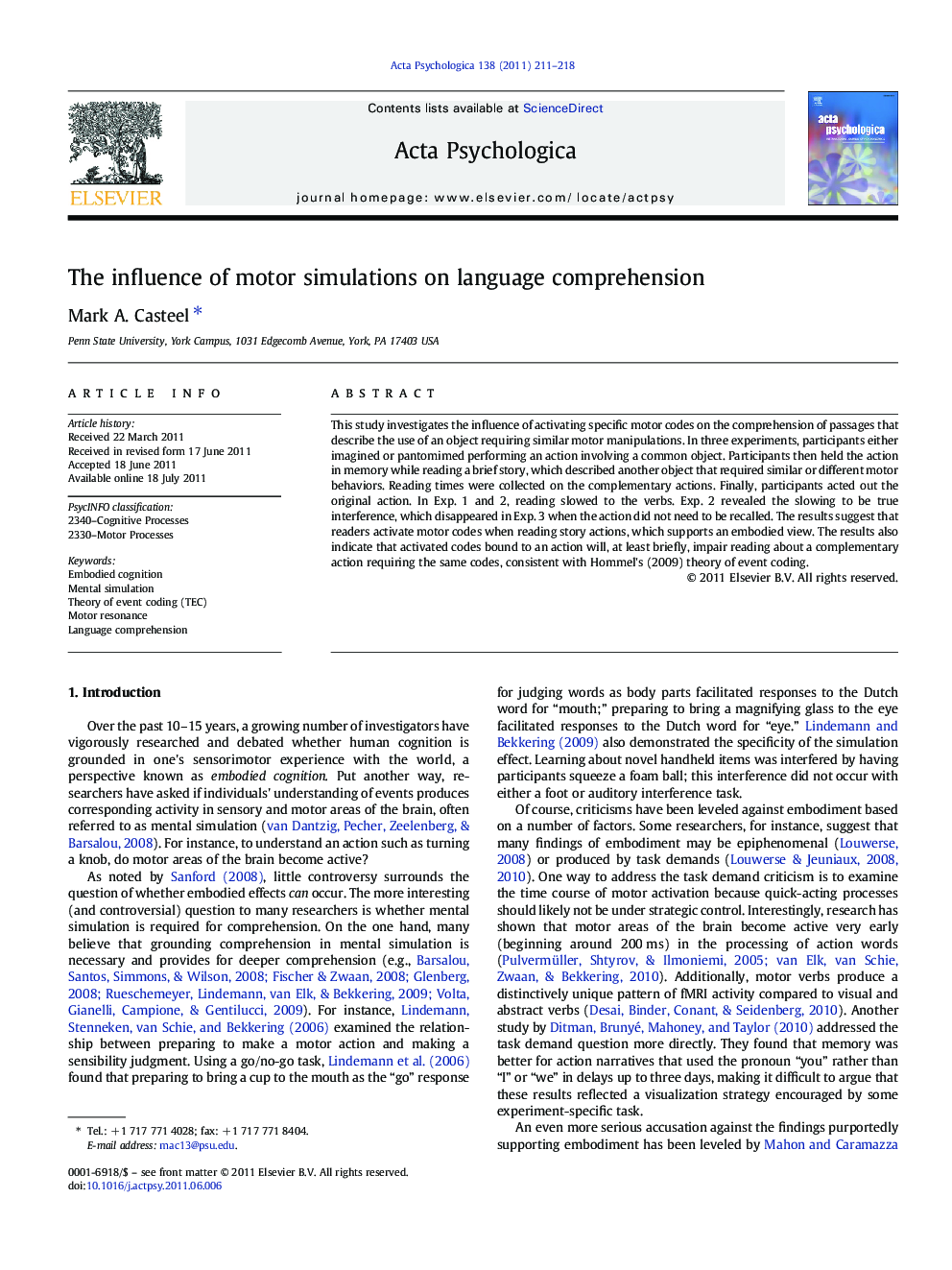| Article ID | Journal | Published Year | Pages | File Type |
|---|---|---|---|---|
| 920190 | Acta Psychologica | 2011 | 8 Pages |
This study investigates the influence of activating specific motor codes on the comprehension of passages that describe the use of an object requiring similar motor manipulations. In three experiments, participants either imagined or pantomimed performing an action involving a common object. Participants then held the action in memory while reading a brief story, which described another object that required similar or different motor behaviors. Reading times were collected on the complementary actions. Finally, participants acted out the original action. In Exp. 1 and 2, reading slowed to the verbs. Exp. 2 revealed the slowing to be true interference, which disappeared in Exp. 3 when the action did not need to be recalled. The results suggest that readers activate motor codes when reading story actions, which supports an embodied view. The results also indicate that activated codes bound to an action will, at least briefly, impair reading about a complementary action requiring the same codes, consistent with Hommel's (2009) theory of event coding.
highlights► I investigate whether activating motor codes interferes with language comprehension. ► Passages describe actions that complement actions either imagined or pantomimed. ► Keeping motor codes active in memory slows comprehension of complementary actions. ► Removing motor codes from memory abolishes the slowing of reading. ► Results are consistent with the theory of event coding.
